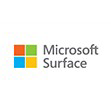
What is antivirus software?
Antivirus software safeguards your computer against cyberthreats. Malware, spyware, phishing attacks, and other viruses can infect your computer and put your personal information at risk. By understanding antivirus software and common cyber-attacks, you can make informed decisions to protect your computer. Learn more about antivirus software and how it can help protect your files and data.
How antivirus software works
Antivirus software is a specialized program that’s designed to detect, prevent, and remove malicious software from your computer or device. Your computer is constantly monitored for any signs of cyberattacks or malicious activity when you have antivirus software at work. This software scans your files, emails, and web traffic for any suspicious codes or behaviors. When it identifies a threat, it takes action to quarantine or remove the malicious files, protecting your system and data from harm.
What is malware?
Malicious software, also known as malware, can harm your computer, laptops, and the data stored on your devices. Malware can be inadvertently downloaded from insidious cyberattacks and by visiting malicious websites. Malware contains harmful programs that are intended to compromise your computer, steal sensitive information, or encrypt and delete data. Its destructive nature makes it important for you to have antivirus software to help prevent breaches.
What is phishing?
Phishing is an online tactic used by cybercriminals to trick individuals into revealing sensitive information, such as passwords, credit card numbers, or personal details. Phishing attempts can take the form of deceptive emails, websites, or messages that impersonate trusted entities, such as banks, government agencies, or well-known companies. These emails typically contain links to fake websites that closely resemble legitimate ones. When an individual enters their information on these fake sites, cybercriminals gain access to their data. Antivirus software helps protect against phishing by flagging and blocking suspicious websites and emails.
What is ransomware?
Ransomware is a type of malware that uses encryption to hold a victim’s personal information for ransom. Malware infects a computer or device, so that a user’s files, data, applications, and other information are inaccessible. Ransomware is designed to target organizations or multiple users. It can spread across a network and target databases and file servers, crippling an entire organization. Ransomware has become more prolific recently. Malware kits are easily available online, but cybercriminals are employing new techniques to improve their success. Antivirus software is a critical component to protecting yourself against ransomware attacks. As with other malware, antivirus software detects and blocks ransomware threats before they can compromise your system or network.
Antivirus software acts as a shield to protect your computer against various forms of malware and other cyberattacks. Cyberattacks can wreak havoc on your computer system and network, resulting in data breaches, compromised files, and stolen personal and financial information. With an efficient antivirus software, you can protect yourself against malicious threats and browse the internet without worrying about any unauthorized access to your data.
If you are seeking products to browse the internet securely, Microsoft offers a range of products, including Surface Laptop 5, Surface Pro 9, Surface Laptop Go 3, and Surface Laptop Studio 2, that are equipped with cutting-edge security features to keep your digital life safer.
Products featured in this article

Surface Pro 9

Surface Go 3

Surface Laptop Studio 2
More articles

How 5G Connectivity keeps your Microsoft Surface secure

How to make your Surface device even more secure

